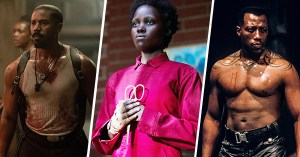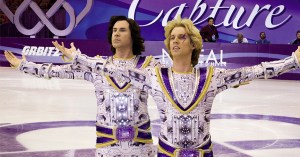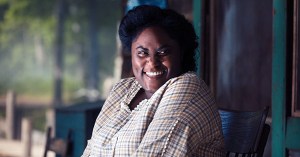Five Favorite Films with John Malkovich
The star of Disgrace recommends five movies for fim buffs.
 Actor, producer, and director John Malkovich has had a long career spanning several decades, beginning on stage in high school. Malkovich, who went on to be a founding member of the Steppenwolf Theatre in Chicago, has also earned praise for several of his film roles, including supporting turns in 1984’s Places in the Heart and 1993’s In the Line of Fire.
Actor, producer, and director John Malkovich has had a long career spanning several decades, beginning on stage in high school. Malkovich, who went on to be a founding member of the Steppenwolf Theatre in Chicago, has also earned praise for several of his film roles, including supporting turns in 1984’s Places in the Heart and 1993’s In the Line of Fire.
This week, Malkovich stars in a new independent film, Disgrace, which opens in limited release on Friday. Based on a critically-acclaimed novel by J.M. Coetzee, Disgrace is the story of a professor in post-Apartheid South Africa who becomes embroiled in controversy when he enters into an affair with a mixed-race student of his. When we asked John for his Five Favorite Films, he responded by saying, “I can’t really say that I have five favorite films; somehow my mind just doesn’t work that way.” As an alternative, we present to you John Malkovich’s list of five recommendations he would make to any cinephile:
The Battle of Algiers (1966,
99% Tomatometer)

Directed by Gillo Pontecorvo, it’s a taut and very telling film about the French/Algerian war of independence, concentrating on the battle of the Kasbah in the capital city of Algiers. A brilliant, prescient, and very humane film with very few “professional” actors. In black and white.
Abraham’s Valley (1993, 86% Tomatometer)

Directed by the Portugese master Manoel de Oliveira. Mr. de Oliveira made his first film, a silent one in 1929, and is probably shooting something [now]. A very idiosyncratic and unique filmmaker with a very singular sense of storytelling and pace. This is his adaptation of Flaubert’s Madame Bovary. It has probably my favorite last line in cinema – along with “Forget it, Jake. It’s Chinatown.” – which is, “No one is so good as I, in pretending life is beautiful.”
Night Train to Munich (1940, 92% Tomatometer)

In black and white, made in 1940 by Sir Carol Reed, who of course also did The Third Man, Odd Man Out, Oliver!, etc. Night Train to Munich is a witty and quite gripping thriller. Intricate and romantic with very amusing performances.
The Conformist (1970, 100% Tomatometer)

I had the great honor of being at a screening of the restored print in Los Angeles some years ago. I think this is Bertolucci’s masterpiece, though one could argue he made several of them. Ravishingly beautiful visuals, terrific performances, and among the most liquid and complex camerawork ever. A study of fascism, based on the book by Alberto Moravia.
Elite Squad (2008, 53% Tomatometer)

By Jose Padilha. A film about the elite police unit charged with combating crimes in the favelas. Very original, tight, often grimly comic and very informative.
For more Five Favorite Films, check our archive.






